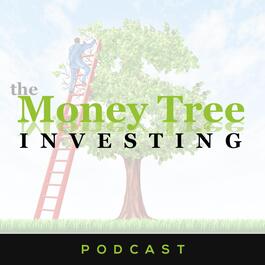
Is Private Equity Destroying Your Favorite Consumer Products?
Is private equity destroying your favorite consumer products? Today we discuss economic news, recent Trump-era tariffs, and private equity. We touch on corporate profit margins, wage growth versus price increases, and how different industries—like autos—are affected unevenly. We also explore interest rates and the possibility that traditional cause-and-effect in markets is “broken,” questioning whether metrics like CPI, GDP, and rate changes meaningfully influence market behavior anymore, given recent patterns where markets defy economic logic. We discuss... Recent economic updates included the rollback of several Trump-era tariffs, though many remain in place. Companies are currently absorbing most tariff-related costs instead of passing them directly to consumers. Concerns were raised that if companies start passing these costs along, price increases could hit consumers later in the year. Wage growth trends are compared with rising prices, raising questions about future consumer spending strength. Industry impacts from tariffs vary, with the auto sector singled out as experiencing specific pressures. Recent market resilience even in the face of economic data could historically trigger volatility or declines. Earnings reports no longer move markets as much because companies lower expectations to easily beat estimates. The focus on quarterly earnings is misleading; long-term company growth matters more on an individual level but less on a macro scale. Value investing has underperformed for about 20 years because fundamentals matter less in today’s market. The Fed’s interest rate tools are less effective because global capital flows and supply shocks weaken their control. The Fed can still cause recessions by raising rates too high but can’t fine-tune the economy like before. Supply-driven inflation (like energy and supply chains) is less responsive to Fed rate hikes. Market rates often lead Fed policy, meaning bond traders set financial conditions before the Fed acts. Private equity often overleverages companies, leading to bankruptcies despite popular products, like Instapot. Private equity uses dividend recapitalization to extract value quickly, saddling companies with unsustainable debt. Examples like Sears, Joanne Fabrics, Red Lobster, and Toys “R” Us show how private equity can ruin beloved brands. Private equity has been successful for investors but often at the expense of the long-term health of companies. Financial planning for college funding is increasingly critical given new loan limits and repayment changes. Today's Panelists: Kirk Chisholm | Innovative Wealth Douglas Heagren | ProCollege Planners Follow on Facebook: https://www.facebook.com/moneytreepodcast Follow LinkedIn: https://www.linkedin.com/showcase/money-tree-investing-podcast Follow on Twitter/X: https://x.com/MTIPodcast For more information, visit the show notes at https://moneytreepodcast.com/favorite-consumer-products-737
From "Money Tree Investing"


Comments
Add comment Feedback